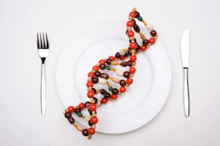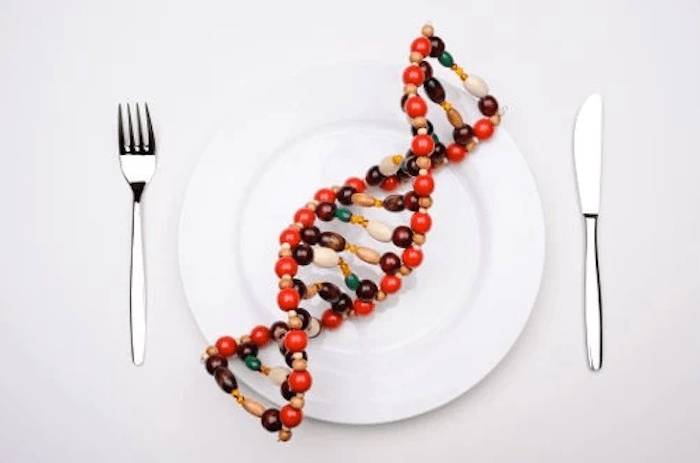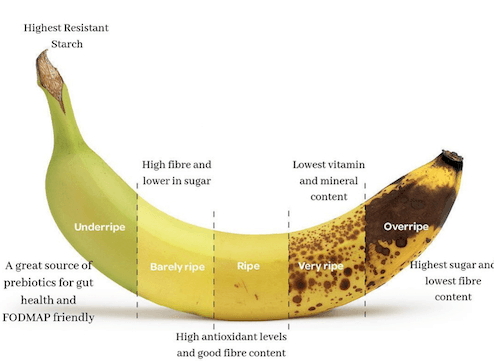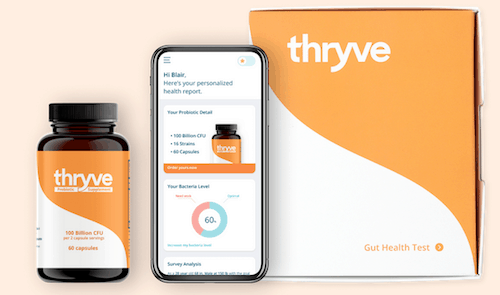Two Personalized Nutrition Tests You Need To Take

Personalized nutrition tests take the guesswork out of what is the best foods you need to nourish your body and optimize health. Here are two to consider.
Breakthroughs in personalized nutrition tests are being achieved largely due to a dramatic reduction in the cost of genetic testing technologies. The value of personalized nutrition can not be overstated, because it turns out that like a lot of things, one size does not fit all.
All of us know someone who seems to be able to eat anything in massive quantities and yet remains lean. We think the reason is genetics (and it may be), or some super fast metabolism (and that might help), but wouldn’t it be great to know for sure?
I mean, not about him or her, but to know what’s ideal for you to eat — what’s your personalized diet?
This is something you can find out with a high degree of certainty right now, and within a few years, the ability to dial in personalized nutrition, as well as exercise, is going to become commonplace and very accurate.
In this post, I want to describe a major study now being planned to understand what is termed “precision nutrition,” and what you can do now to determine the best diet for your genetics and microbiome.
(1) Personalized Nutrition Tests and GeneFood
Let’s begin with a banana. Are bananas a “good” food to eat or not? The answer depends on a variety of factors, which distill down to you and your individual attributes, because there’s no one-size-fits-all diet.
If you want to avoid spiking your blood sugar (glucose) with a snack, a banana may seem like a better choice than a sugary cookie, but in an 2015 Israeli study some number of 800 volunteers got their biggest blood sugar spike from bananas or bread instead of from sugar-laden baked goods. This was counter to expectations, and wasn’t fully explained in the study. Scientists want to know the answer.
The U.S. National Institutes of Health (NIH) is now making a major push to understand personalization — the individual differences in how people respond to macronutrients (protein, carbs and fats). Currently in the planning stages, the NIH will undertake the largest study yet to investigate precision nutrition. Starting in 2023, it will be a $156 million, five-year effort to examine how 10,000 Americans process foods by collecting data ranging from continuous blood glucose levels to microbes in one’s gut.
Here’s how the nutrition study will be designed:
- Everyone will wear various monitors to track physical activity, blood sugar, etc.; record what they eat; and visit a clinic to consume a specific meal and undergo clinical tests.
- A subset of up to 1,500 participants will also follow three different diets at home or in the clinic, and then have the same tests.
- 500 to 1,000 volunteers will live at a clinical center for three 2-week stretches while eating three tightly controlled diets. Such “feeding” studies are the field’s gold standard, but their high cost usually keeps them small.
Once all the data is collected, artificial intelligence researchers will create models that predict the best diet for an individual. The ultimate goal is to enable nutritionists to tailor diets to an individual’s genes and microbiome.
That’s all great, but you don’t have to wait eight years to get a handle on your personalized nutrition. Companies like GeneFood can use your DNA data from 23andMe and provide you with personalized nutrition regimens that tailor diet, lifestyle, and exercise to your genetic predispositions.
Finally, you can take the guesswork out of which foods best suit your genetic propensities, as well as the most effective exercises.
You can also focus on ensuring that the beneficial to harmful ratio of your gut microbes favor the beneficial buggies, as you’ll soon learn.
(2) Microbiome Testing and Thryve
The microbiome is the collection of all microbes (bacteria, fungi, viruses, and their genes) that naturally live in and on our bodies. These microbes require a microscope to see them, but their impact on our health is easy to see and assess, given that they protect us against pathogens, help our immune system develop, and enable us to digest food to produce energy.
But not all of our microbes are beneficial to our health. Processed and sugary foods feed harmful microbes that can promote a wide assortment of chronic ills, from Alzheimer’s to heart disease.
The key is to eat the right foods to help insure that the Firmicutes to Bacteroidetes ratio favors Bacteroidetes.
I explained this in my post, Test How Your Invisible Gut Bacteria Affects Your Health, which distills down to this:
- In humans, about 90% of gut bacteria are represented by two phyla—Firmicutes (60–80%) and Bacteroidetes (15–30%).
- Both phyla produce beneficial SCFA from indigestible carbohydrates that reach the colon, with Firmicutes being the main butyrate-producers and Bacteroidetes producing mainly acetate and propionate.
- Propionate-producing bacteria are “good” — they inhibit cholesterol synthesis.
- Acetate-producing bacteria are “bad” – they can contribute to obesity, among other unwanted outcomes.
Without knowing what your genes have to say in the matter, you can dramatically improve your diet through proper feeding of your gut microbes.
For ideal balance of the gut microbiota, eat a diet that is low in refined carbohydrates and processed foods, rich in fiber, essential fatty acids, and phytonutrients, with a variety of fresh fruits and vegetables, beans (legumes), nuts, and whole grains.
The more your food resembles what the farmer grew, the healthier it’s likely to be for you and your microbiome. And that’s what you want, because a healthy gut microbiome may improve your healthspan and helps prevent the risk of Alzheimer’s.
If you want to know if your microbiota are helping or hurting you, consider doing a personalization nutrition test offered by Thryve. Thryve is the first gut health company that incorporates microbiome testing with personalized dietary and probiotic recommendations.
Your Takeaway
We’re several years from definitively being able to determine the perfect, personalized nutrition plan for each individual, but you don’t have to wait that long to get on the right track.
Right now you can get personalized nutrition tests to help you tailor your nutrition and exercise to your unique needs. Two to consider are:
- The GeneFood test to personalize nutrition regimens that tailor diet, lifestyle, and exercise to your genetic predispositions; and
- The Thryve test to get the details about you need to eat to enhance your microbiota health.
When you consider how much time you’ve spent taking the trial and error approach to diet optimization, why not end the confusion and find out!
Last Updated on July 7, 2023 by Joe Garma






